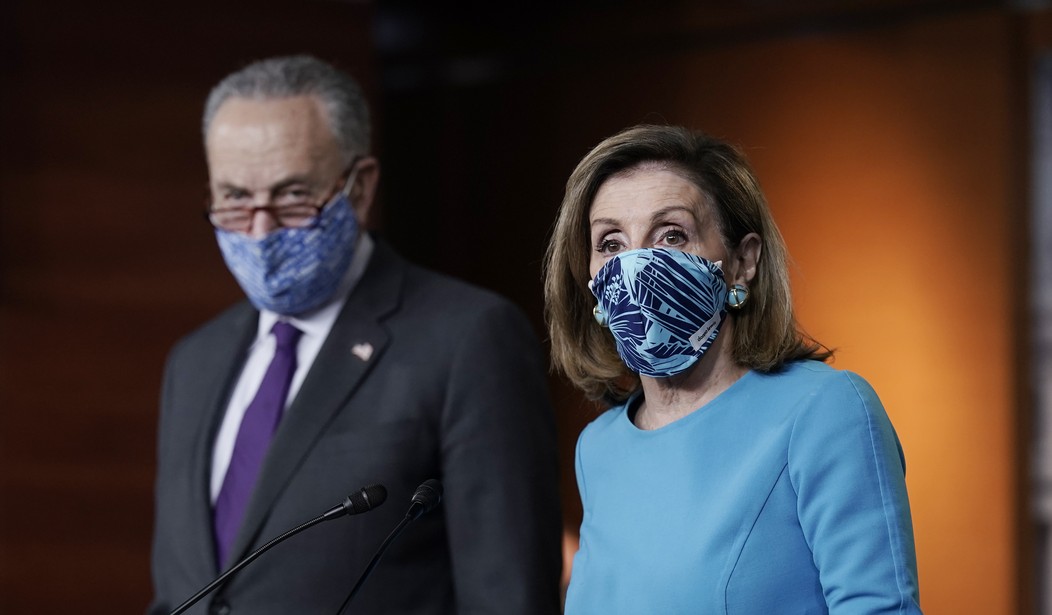There is a paradox inherent in the Democratic Party these days. On one hand, a confident party would not need to focus so single-mindedly on tipping the scales of process. After using courts to push back on a gerrymandering game they were losing, effecting historic changes to our election rules in 2018 and 2020, and pioneering the refusal to concede, Democrats now want to ban gerrymandering altogether, cancel state sovereignty over elections, and add new states to the union. A party that believes that demographics are destiny, that their rule is preordained, would not seem to require such heavy-handed and destabilizing means to have their way. On the other hand, it is their confidence – and their belief that they are history’s anointed actors – that propels them forward to make permanent the majority they’ve told us they deserve, even if they have to change all the rules to get there.
The New York Times opined last week that President Biden should limit the pace and scope of his executive orders, and to their credit they warned about the risk of the whipsaw effect I mentioned in these pages a few weeks back. What they failed to mention, and what continues to present the biggest risk to our country, is that action on these major, literally union-changing ideas absent a strong consensus is the exact formula for how not to maintain a political union. Democrats will say that the risk is worth it, that their opponents are bitter holdouts who must be brought along, and we’ll know that’s the evidence they’ll put partisan interest ahead of institutional responsibility.
I remember not long ago as Sen. Mitch McConnell pushed through the third Supreme Court nomination there were similar laments from the Left. They concluded that all the then-Senate Majority Leader cared about was power, winning, not what would heal the country. They impugned him, and their anger was righteous. My point here is not to chide Schumer nor advance a specific policy argument, and certainly not an attempt to appeal to what little institutionalist allegiance remains in our era of partisan fervor. It is instead to make sure we all clearly recognize the risk to our domestic stability if this historic escalation comes to be. Forget about the political arguments, this is the territory of the reckless. Schumer will be needlessly endangering the country.
Recommended
To make further clear, this is not an argument to warn of a right-wing backlash, drastic and deserved as it will be, politicians shouldn’t make decisions based of fear of reaction. And elections have consequences. The backlash isn’t the great risk. Instead, the risk is that the policies the Left is pushing for explicitly change the terms of the union. They’re marching forward to deliver these terms upon the country absent a broad national consensus. And in doing so they are risking the maintenance of our political union.
I wrote a few weeks back that we are in a revolutionary era. Failure to recognize that, to slip back into traditional thinking and forget the age we’re in, creates a false sense of security. When Democrats say ‘democracy reform,’ they mean that in a very literal fashion. While Republicans are reeling from January 6 and figuring out how to strategize during impeachment, how many have read House Resolution 1? Democrats want to change the century-old filibuster process to usher in generational changes with H.R. 1 as the vehicle and enact everything I mentioned in the first paragraph. Yes, that’s all in one bill. The goal is not to advance policy, but to change the rules so Democrats can dictate all future policy. To give you an idea of how important this is to Democrats, it is well, House Resolution No. 1, the first bill they’ve introduced in two consecutive Congresses. If you’re not familiar with it, start reading. It’s a field guide for a permanent majority; this is the fascination of the Intellectual Left and has been for several years as they bristle at our system’s natural limits on their vision of progress. The popularity, or lack thereof, of these policies is not directly relevant to the bill’s passage. That the contents of the bill have no bearing on the struggles Americans face daily amid a pandemic reveals much about our political opponents and why their majority is so thin.
Our bicameral legislative process requires not just majority support in polls, but a breadth of consensus from diverse corners of the country. To sidestep the hard work of building that broad consensus across the many states and to instead actually lower the bar to passage of dramatic legislation is the recipe for instability. Lowering the degree of consensus needed for major, union-testing change to core elements of our democratic processes at the exact time of our greatest division is to choose chaos, not progress. It will not move the country forward; we’ll proceed further down the path of political denormalization. These are dangerous hours, Chuck, stop playing with matches.

























Join the conversation as a VIP Member